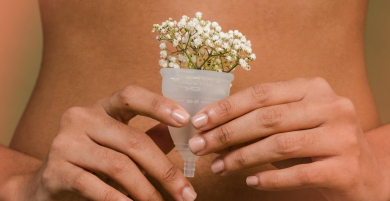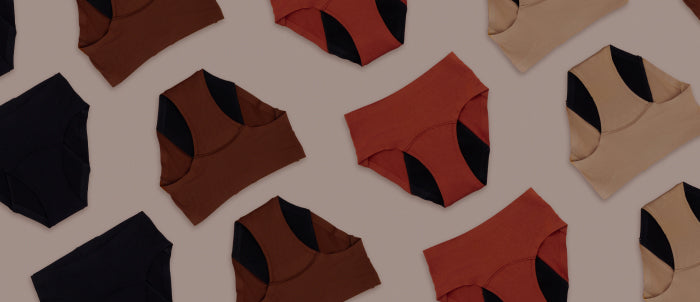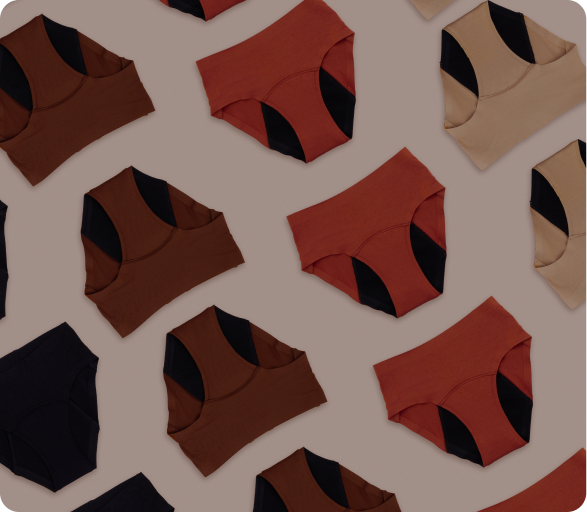There’s something oddly comforting about the little rituals we build around our periods. Maybe it’s the way we curl up with our heating pad, the herbal teas we swear by, or the silent acknowledgment of collective suffering every time a friend whispers, “Me too.” When we hear about ‘new’ menstrual hygiene products, we turn to Google– for answers and placing orders.
For many of us, switching to menstrual cups or tampons felt like a period glow-up. No more crinkly pads. No sweaty discomfort. No awkwardly stuffing a pad up our sleeve on the way to the bathroom. Just freedom.
Until something felt...off.
Understanding Vata
During your period, your body isn’t just shedding blood– it’s detoxing, recalibrating, and resetting itself. The entire process is guided by Apana Vata (if we go by Ayurveda) or simply your body's natural downward energy flow (if you prefer the scientific lens). This energy ensures everything that needs to leave—menstrual blood, uterine lining, toxins—does so smoothly.
Hence, any interruptions in the Apana Vata-such as blocking of this downward energy-makes the body notice this shift-which may seem like something is off with your period.
Imagine Vata as a wind inside you, to visualise better what it has to do with movement, flow, and elimination. When in check, Vata is what keeps all departures smooth; when out of control– which Ayurveda fondly calls the Vata imbalance– it wreaks chaos like a gusty windstorm.
Ayurveda’s Take On Menstrual Cups
Surprisingly (well, not really), Ayurveda and Science agree on the dangers of menstrual cups.
Both of them suggest that holding menstrual blood inside for long periods could pose problems: Ayurveda calls this aggravating Vata, which disrupts the body’s natural rhythm; whereas the risk of you suffering Toxic Shock Syndrome increases.
Tampons and menstrual cups, while amazing in their own ways, sit inside your body and hold blood in place rather than allowing it to leave naturally.
Who Should Not Use A Menstrual Cup?
For most people, Apana Vata imbalance isn’t a huge problem. But for others, such a small difference may have more impact on them than we would imagine- for example, serious medical issues like renal colic.
You should avoid internal menstrual products if you:
- Have irregular periods or struggle with dryness, bloating, or severe cramps
- Experience vaginal atrophy or extreme sensitivity.
- Are living with conditions like endometriosis, or prolapse of the uterus(As per peer reviews)
- Are prone to urinary tract infections (UTIs).
Side Effects Of Using Menstrual Cups And Tampons
Even beyond Ayurveda, there are scientific and logical reasons why internal period products might not feel right for everyone:
- Menstrual cups create a gentle suction, which can change the way your pelvic muscles feel during your period.
- A study detected 16 metals (some of which are toxic) in various tampon brands. Research suggests that exposure to these toxic metals like Lead, Arsenic and Cadmium may increase the risk of conditions like PCOS.
- Tampons absorb more than just blood—they also soak up natural moisture, sometimes leading to more than expected dryness or irritation, which may turn chronic. Thus, that’s one of the many clear side effects of tampons, apart from the Indian apprehension towards using this ‘foreign’ product.
- Using internal products can make you "forget" about your period, which might sound convenient but can also detach you from your body’s natural signals!
The female body has been handling menstruation long before modern period products existed—it knows how to communicate when it needs a change. We just need to learn its language.
Which Is Better- Menstrual Cup Or Period Underwear?
None of this means cups or tampons are bad. Many women use them without problems. This is far from fear mongering or promoting one product over the other–it is about identifying the needs of your body, which includes keeping your Vata-imbalance below harmful levels.
There is no one universal answer when it comes to period care.
It is YOU who makes informed choices about what works best for YOUR period.
So, if your menstrual cup is your holy grail, great. If due to this new-found wisdom about Vata you’re considering switching back to pads–that’s valid too.
You may also try out newer alternatives like period underwear. Unlike tampons or cups, period underwear doesn’t block or hold blood—it lets it flow naturally, aligning perfectly with Apana Vata’s downward rhythm.
Plus, no risk of Toxic Shock Syndrome, no dryness, and zero stress about suction or pH disruption-the struggles of tampons and cups. Or the chemicals that come with pads and tampons. It’s like giving your body freedom and comfort without compromise.
Lastly, if you ever find yourself doubting whether that dryness or heavy flow is all in your head, just remember: somewhere out there, someone is experiencing the exact same thing, googling the same questions, and whispering to themselves, "Me too."
You’re not alone in this.
DISCLAIMER: Since much of Ayurvedic practices remains in traditional hard copies and is yet to be fully digitized, readers are encouraged to consult a qualified Ayurveda practitioner to verify practices before attempting it.


























































